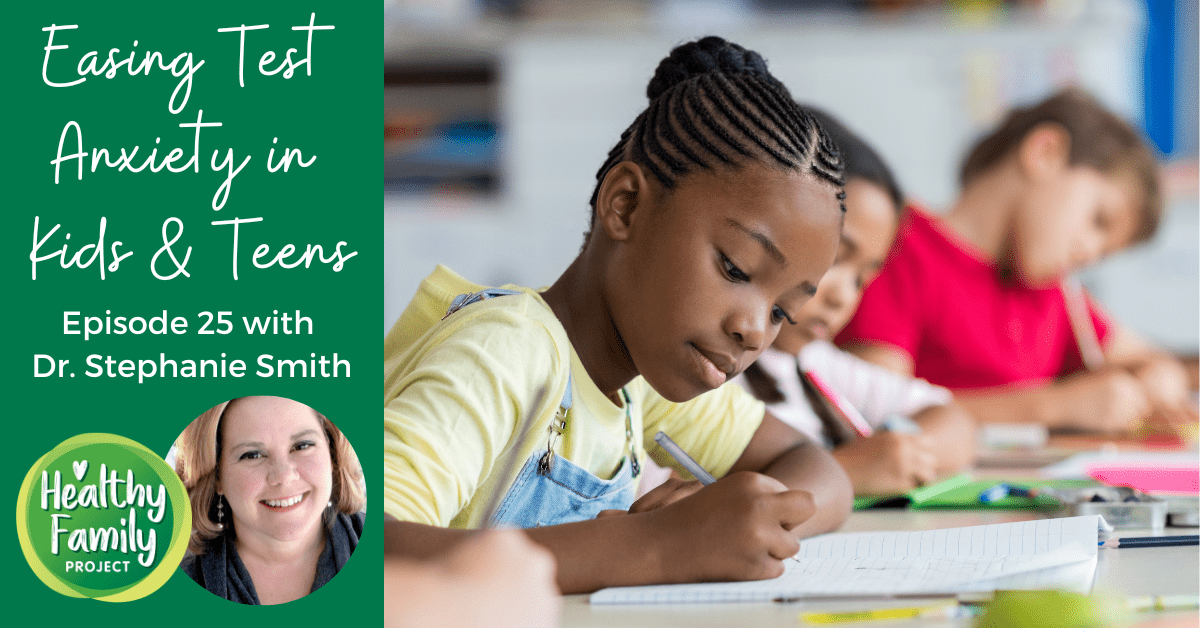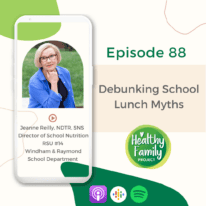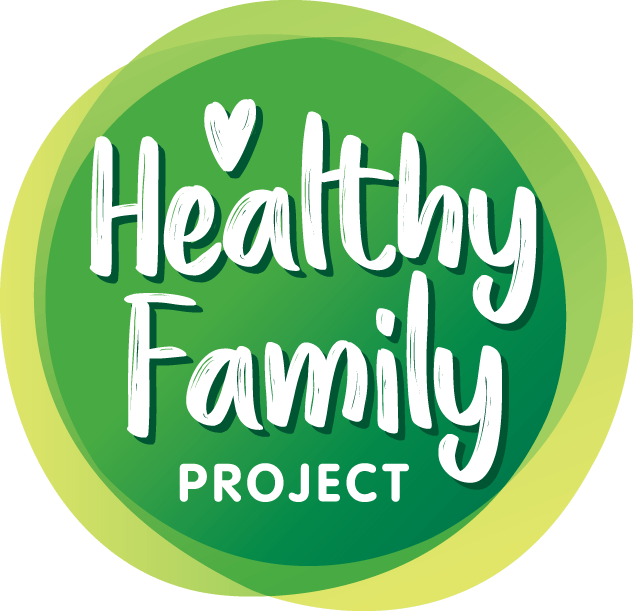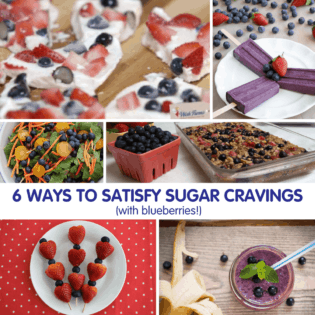Episode 25: Easing Test Anxiety in Kids and Teens
In this episode of Healthy Family Project, we talk to Dr. Stephanie Smith about easing testing anxiety in kids and teens. Dr. Stephanie shares tips on how to help your kids manage testing stress, how to prepare mentally for testing, establishing a good morning routine for big tests and how to talk to your kids about their test results.
Whether your child undergoes standardized testing at school, is prepping for college entrance exams like the SATs or just has a big school test coming up, this episode is a must-listen!
Dr. Stephanie Smith is a mother, clinical psychologist and author of Dr. Stephanie. In her practice, she works with moms, dads, teens and tweens. Dr. Smith uses humor, compassion and common sense to help people make positive changes in their lives. She especially enjoys working with parents to assist them in strengthening their families from the inside out.
On her blog, she writes about technology, parenting, friendship, and pop culture – all with a mental health twist. In addition, Dr. Smith is an official blogger for the American Psychological Association’s blog, Your Mind, Your Body.
Healthy Bites!
Today, we’re snacking on a delicious Caramelized Vidalia® Onion, Goat Cheese and Arugula Flatbread Pizza from RealSweet® Onions! Caramelize your onions ahead of time and throw this flatbread together is just 15 minutes.
Vidalia season officially kicks off on April 22 so keep your eyes peeled for RealSweet Vidalia onions hitting a grocery store near you. Grab the recipes on RealSweet.com.
Listener Survey!
Thank you so much for supporting the Healthy Family Project Podcast! We’d love it if you could take 5 minutes to let us know how we can bring you the best possible content for future episodes. Take the survey here.
Healthy Recipes & Tips in Your Inbox
Sign up for the Healthy Family Project e-newsletter to receive healthy recipe inspiration, our latest blog posts and more directly to your inbox each week.
Healthy Family Project Facebook Group
Join our Healthy Family Project Facebook group! This group will serve as a safe space for parents and caregivers to talk all about raising a healthy family – from dealing with a picky eater and tips to get more fruits and veggies onto plates to exercising as a family and mental health. We welcome all of you to join in!
Want to skip straight to a hot topic? See time stamps below. But of course, we recommend listening all the way through!
- 1:55 How to help kids & teens manage stress around tests
- 6:08 How parents can help kids mentally prepare for tests
- 8:45 Healthy Bite Break
- 11:15 Tips for morning routine on the day of a big test
- 14:01 How should parents go about reviewing test results with kids
Relevant Links
- Ask the Psychologist: Managing School Anxiety
- Dr. Stephanie Smith’s blog
- How to Build a Better Breakfast
- 12 Healthy Make-Ahead Breakfast Ideas
- Standardized Tests – How to Help Kids Cope with the Pressure
Other Podcast Episodes to Check Out:
- Episode 19: Promoting Positive Body Image with Kids
- Episode 8: Anxiety Around Back to School
- Episode 3: Managing Screen Time
Healthy Family Project Podcast
Conversations covering hot topics in the world of health, food and family with a dose of fun. Helping families ease their way into a new fresh and healthy world.
Be on the lookout for new bi-weekly episodes and don’t forget to subscribe on Apple Podcasts, Google Podcasts, Spotify or your favorite podcasting site. If you like an episode, make sure to leave a rating and comment.
If you are interested in being a guest on the Healthy Family Project podcast, contact amanda@healthyfamilyproject.com with your topic idea for consideration.
Transcript for Episode 25
This transcript was produced by Otter.Ai. Please forgive any misspellings and grammatical errors.
00:14
Welcome to the healthy family project by produce for kids, covering the hot topics in the world of health,
food and family with a dose of fun. Today we’re chatting with Dr. Stephanie about easing test anxiety in
kids and teens. Whether your child is undergoing standardized testing at school, prepping for college by
taking the PSATs, or AC T’s, or taking a weekly spelling test, there’s always a little or a lot of testing
anxiety and pressure around around this testing. I’m always excited to talk with Dr. Stephanie. She’s a
regular on the podcast and contributor to our produce for kids blog. Dr. Stephanie is a clinical
psychologist who works with families and is also a mom of three. Make sure to check out some of the
past episodes with Dr. Stephanie, including episode three, managing screentime, Episode 19, promoting
positive body image with kids and episode eight anxiety around back to school for families. Let’s get
started with today’s topic. Welcome back to the healthy family project. Dr. Stephanie,
01:20
thank you so much.
01:22
So it’s definitely test taking season in our house, I, I’m filling it. So I know many parents who struggle with
the balance of making sure your kids know these tests are important, and they should do their best. But
not to be anxious about them. It’s kind of like, you know, these are important, these are so important. So
important, so important, but don’t be stressed. So what advice do you have for parents who are working
to establish the importance of the tests, but also manage the stress levels around them?
01:54
Well, I think tests are a part of life, right? So, um, they just seem to get more and more as kids get older,
you know, spelling tests, standardized tests, and then they have physical tests and musical tests, and
they just are sort of never ending. So I think it is important to help have some good tools within the family
for managing that test anxiety. I think the first thing is to help understand most of our tendency to sort of
go to the worst case scenario, like if I bombed this test, I’m going to have to repeat the grade or my
teachers going to be so mad, or they’re going to kick me out of school or, you know, whatever the worst
case scenario is, most of us are pretty good at getting there. We call that catastrophizing. Assuming that,
you know, catastrophic, things are going to happen. But of course, when we take a step back, especially
as parents, we we just know that those things are very rare. If maybe impossible, I’m not going to happen
at all. So I think it’s important to talk with our kids about that, like, Okay, well, let’s sit down, and let’s
really understand the meaning of this test was standardized tests, they’re trying to the maybe the school
district is trying to understand where the bulk of the kids are in terms of academic functioning at this point
in time. It doesn’t have anything to do with if you’re moving on to the next grade, it doesn’t have anything
to do with if you’re a good student or a bad student, or care about school or don’t or, you know, I mean,
so I think there’s a way to talk about it and kind of pick it apart. So we’re not just letting our brains barrel
ahead to the worst case scenario. Understand what, what the meaning of the test really is. And usually,
it’s just one small piece of how teachers or schools or districts or states assess academic functioning.
But there’s a lot of other pieces to that assessment, too. And this is just one small part.
04:18
That’s a really good point. And I think, as parents sometimes because, you know, the tests, there’s,
there’s just so many I feel like this time of year, especially here in Florida, you know, you have the
standardized tests, like you mentioned, where it’s kind of assessing where the school is, and you know,
what levels the students are at and things like that, but then also they’re called like the EO EOC or
something with my seventh grader, you know, where it’s a weighted grade, kind of at the end of, of the
year that really plays a huge factor. You know, it’s, it’s kind of crazy. Sometimes they can have a certain
grade all year. This test, unfortunately, you know, really can bring that down or bring it up. So it could go
either way. But I think as parents understanding the tests, and like you said, helping the kids to
understand, you know, kind of what, what the results mean, because I don’t know that any of us all the
time understand completely, we just know, there’s lots of tests.
05:27
Right? And and what are the other things that like for your seventh grader? What are the other things
that load on to that final grade? Is it completing homework? Is it participation in class? Is it attitude or
effort, you know, and making sure we’re giving those things, you know, attention to, it’s easy to give
attention to tests. But sometimes we don’t fully appreciate and recognize all the other factors that go into
success?
06:01
Exactly. Now, what tips do you have for parents to help their kids prepare mentally for testing?
06:10
So I think I’m, this can be part of a bigger effort and part of the parents or just families in general, to have
strategies on board for managing stressful situations. So that might mean trying out, you know, taking
deep belly breaths, 10 of them, see if that, if that’s something that feels good to your kids? Is it physical
activity, you know, 20 Jumping jacks, and three push ups and two burpees or something like that? Is it
imagining kind of, you know, when people say, go to your happy place? So we, you know, visual kind of
imagery, is it helpful to think about being at the beach or being at the pool or being on the ski slope or
Disney? I think there are a lot of easy, free quick strategies that we can learn and practice in not stressful
periods of time. So that when it is a testing season, or got a doctor’s appointment, or something that’s
producing anxiety, you can say, oh, remember, let’s do 20 Jumping Jacks together, because that really
helped last time, or let’s pretend we’re at the beach, as we’re driving to school, or what you know, I think
it’s super helpful to talk about those things as a family, and be really fluent in being able to pull up those
strategies when needed.
07:54
Those are great and really easy, like you said, free and easy little things that you can do that don’t take
take up a lot of time either. I’m gonna have to implement that as drive. We’re driving to school, certainly
with my seventh grader as she’s being so, so lovely to me.
08:13
Well, and I think the other thing is a lot of these like deep breathing or progressive muscle relaxation or
visual visualization. These are things we can do and nobody else can tell we’re doing them which is
really cool. So you can do it in the classroom. You can do it on stage, and it’s just totally private. Which
makes them I think even more effective.
08:42
Today’s healthy bite is brought to you by real sweet Vidalia onions. funfact produce for kids was started
by real sweet as a way for the produce industry to give back back in 2002. Monday, April 22 marks the
kickoff of Vidalia season. The Vidalia Onions distinctive taste is derived from the combination of weather
water and soil uniquely found within 20 South Georgia counties so it is like a fine wine people. The
onions are available yearly and limited to a typical time period of April to August. Timing variety varies
year to year. So Grace is here today with something she’s cooked up using real sweet Georgia groans
sweet onions. So Grace, what do you have here today?
09:28
So we’ve got one of my favorite Friday night dinners when you don’t feel like cooking much. We’ve got
really tasty flatbread topped with caramelized onion, arugula and goat cheese. That’s Amanda taking a
bite definitely I love this combination really tasty. It’s just got that savory and sweet combo that I love with
the balsamic the sweet onions of course and then you know obviously the we add to olive oil. The
arugula is tossed in a little olive oil and salt and pepper just to, you know, balance out the sweetness.
Yeah. What do you think?
10:05
Well, that was a real true crunch right there. And it’s amazing, really good caramelized onions, anything
with caramelized onions is amazing. And like you said, this sweet, savory combination is perfect. And
this looks like it’s fairly simple to create.
10:21
Yeah, and the great thing is, you can just pick up a flatbread from the grocery store. premade, you don’t
have to worry about it, just top it. You know, pop it in your oven for 10 minutes, and dinner’s ready. And
it’s definitely a hit with the kids. And everyone pretty much who doesn’t love pizza family
10:35
favorite? Awesome. Well, we’ll link up to the recipe in the show notes so that you can grab that and
create your own. Now, what about, you know, tips for the morning of or the night before? I guess we all
know, kind of you should get a good night of sleep or, you know, have a big breakfast? I don’t
necessarily, I mean, I’ll let you weigh in. But I don’t, I don’t change a whole lot. Because I like to kind of
not make it seem totally like, you know, we’re doing something different. But do you have any tips for that
morning of or maybe the night before?
11:11
You know, I I totally agree with you. Years ago, when my oldest kids were young, their school, I think, you
know, of course trying to be supportive. Every day of testing, they had a big breakfast for the kids. Which
seemed great was kind of fun. But I think what it ended up doing was, was sort of adding to the sense of
anxiety, like, this is a big deal. And oh my gosh, we have to really feel love. And then of course, the
parents stressed because they were having to bring the food. I mean, it was just sort of a mess. So. So I
agree with you, of course, having a decent breakfast, having a good night’s sleep, getting plenty of water.
Those are good. Tips all the time. But I think you’re right, what if we make it too big of a deal. It can just
make that anxiety and worry blossom, and and really make the whole situation much more difficult than it
probably needs to be.
12:16
Right. And of course, if you’re not already doing those things, getting a good night of sleep and having a
healthy breakfast, probably things you should implement just in general, not not just on test days. Right. I
know my older daughter, she’s kind of in a phase right now where she’s not. And I’m I’m kind of the same
where I’m not necessarily hung super hungry when I first wake up. So it takes me some time, sometimes
I’ll have lunch, you know, on the road or at my office, it just takes my stomach a little bit of time. And I see
she’s starting to kind of shift into that, too. So she’ll grab a banana as she’s going out the door. Probably,
you know, and then take a snack along with her in her backpack to have like mid morning. But I do make
sure she’s had some tests, I think it was last week. And I made sure I made some make ahead breakfast
burritos and things like that, that she could just easily heat up. So I made it more of a point last week that
she had to have more than a banana. So I did do things just a tad different, but I just wanted to make
sure that she wasn’t going to be hungry while she was taking the test because there’s nothing worse than
having your stomach growling while you’re trying to focus and concentrate. True. Good point. Yes. All
right. So all good stuff here for for test taking now. Let’s talk about once the results come back in what
advice do you have for parents to review results with their kids, especially, you know, if the results aren’t
the best?
13:59
Well, I think I’m, again, kind of having an understanding of how the schools are interpreting all of this. So
I know that the schools around here for the most part, have really changed how they present the the
assessment results for the kids and families. They they actually kind of do a nice job of I don’t know if
downplaying but keeping them in perspective, like, this is one data point. You know, we may have one,
you know, maybe 10 data points on on each kid through the year this is one or two of them. So it’s not
inconsequential, but it’s also not, you know, everything. So I think, you know, we can we as parents can
adopt that same mentality that you know, this is one data point, let’s let Sit down and look at it. Um, but
then be done with it. You know, we don’t need to belabor it, we don’t need to punish or, you know, get
into some huge, big argument or conversation about how are you going to do different next year? You
know, I just don’t think that’s when those results come back. I don’t think that’s the time to have those
kind of conversations. I think we look at it, we understand it and then move on. You know, I think the
other thing that sometimes is hard for parents is that the data that’s produced from these evaluations can
sometimes be really confusing. I mean, there’s a lot of statistics involved. And not everybody has a great
understanding of statistics. But it, it’s important to have some understanding to be able to interpret them
appropriately. So just making sure that you’re, you’re as knowledgeable as you can be as a parent, and I
think leaning on teachers in schools to say, help me out how do I talk about this? In a way that’s
respectful? And but also not, like I said, just sort of catastrophizing, the whole process? Yes,
16:17
I feel last year, I had a lot of confusion. At the end of sixth grade, whenever we had our testing results
returned and years passed, I maybe I didn’t have as much confusion in your in years past, but I don’t
think I realized to reach out to the school, and I did that last year. And they were very helpful. And I went
into the school, and they explained things to me. And I felt so much better. And I was so glad that I took
that little bit of time to just better understand what everything meant. And I felt better. And I was able to
help, you know, my daughter feel better, too, because because I knew what I was looking at.
17:02
Yeah, I mean, because I think it’s important to remember that the people that develop these tests, and
come up with a grading and scoring of all these tests have had years of graduate study and statistics and
probability. And, you know, most parents don’t have that. And that’s fine. But I think your point is well
made, like the educators are usually really excited to share their knowledge and their expertise, and
helping parents and kiddos understand what all those numbers mean.
17:42
Yes, well, then I have, you know, as far as talking about results, my younger daughter, she doesn’t hear,
she sees a number and then her ears are closed, you know, she’s, it’s things have been a little bit more
difficult with her because I just have to be very careful. Like, before we sit down, I can’t show her a
number, she can’t see a grade on a test. You know, of course, if it’s a great grade, then that’s fine. But
you know, if she sees something, it automatically you can see her wheels spinning, and she’s upset, and
she’s sad. And she’s, you know, I can tell she’s just, it devastates her. It’s almost like you I want to hide
these things from her. But I know that’s not not the right thing to do, either. So I almost have to like, flip
things with her where I keep the results to myself and talk her through before we look at those results
together.
18:40
Mm hmm. I think that’s another good point. Like all of our kids are so different. What works for one may
not for another. Some kids get really worked up some don’t seem to care at all. I mean, and that’s all
normal. It’s totally normal to have completely different reactions to these sorts of things.
19:04
Oh, great. Well, thank you for taking the time to chat today. I knew I wanted to I know you’re very busy.
So we appreciate your time. I wanted to just hop on. I know it’s a hot topic right now with test taking
season. We’ll actually be linking up in the show notes to an article that Dr. Stephanie is, is writing for the
produce for kids blog. And then we will also link up to any other resources. You know, over in the show
notes if you guys want to head over there. So thank you so much, Dr. Stephanie. Thanks for having me.
Thank you to everyone listening to today’s episode. I really hope these tips give you a little more
confidence in managing the pressure around testing. You can find more from Dr. Stephanie on the
produce for kids blog at produce for kids.com and also at Dr. Stephanie smith.com. We are growing yay.
Every week I’m in awe as I see our listener numbers climb, and know that we are making an impact in
your lives. If you like the healthy family project, which I hope you do, tell a friend and leave us a rating it
will only help our visibility so we can continue to create a healthier generation. If you want to tweet with
me direct I met Amanda M Kiefer on Twitter, and I want to hear from you. Please let me know what topics
you’d like us to cover any feedback you have all of that as welcome. And as always, you can find
produce for kids on Facebook, Twitter, Instagram, Pinterest and YouTube. Be sure to subscribe talk soon













